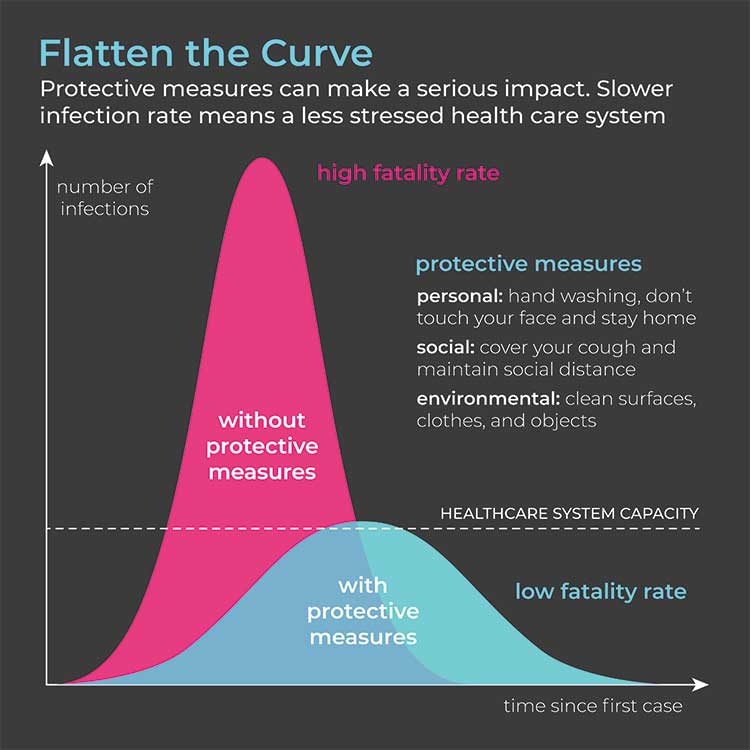In response to the COVID-19 pandemic, people across the globe are having to stay home and these extended periods of isolation are causing stress and anxiety in many. The World Health Organisation has called on everyone to pay special attention to mental health during this pandemic. Mental health advocates have suggested that people prepare themselves for enforced work from home or home-schooling situations and the blurring of lines between home life and work life. If feasible, creating a physical space to work from within the home is advised during the pandemic for mental health. Fix a number of hours for work, and upon completion, check out of work with a message to a colleague. To cope with isolation, try to get some indoor exercise a few times a week; engage in activities, such as puzzles, or set challenges, such as reading/cooking challenges, that give a sense of achievement; and make it a point to check in with family and friends through calls, video chats and messages.
The Coronavirus Pandemic – Flattening the Curve

As the Novel Coronavirus disrupts life all over the world, the World Health Organisation has declared it a pandemic. At the time of writing this, there are 785,979 registered cases worldwide, and the death toll stands at 37,810. With many countries under complete lockdown, the banning of international flights and travel and the endeavours by government and private organisations to allow employees to work from home, the streets are empty; it seems a bit like a dystopian reality.
One of most effective measures that we can take as a society is to flatten the curve. The health sector in every country has only a certain capacity to provide health care, and treatment services to patients. The problem with the rising numbers of coronavirus cases, as we’ve seen happen in other parts of the world, is that there is not enough space for patients to be taken care of in hospitals and not enough beds in Intensive Care Units, resulting in several fatalities due to the lack of treatment facilities. This is where flattening the curve comes in. By committing to social distancing (maintaining about 6ft distance from others), staying at home and not gathering in public places, we will be able to slow the spread of the coronavirus, and thereby reduce the strain on the health sector to treat a large number of people at a time. Stay home, keep yourself and your families safe and stay tuned with the rules of the government and follow them in order to flatten the curve.
Hot baths may reduce heart disease risk

New research published in the journal ‘Heart’ claims that in Japan, where taking baths is a key part of the culture, people who take hot baths often show a significant decrease in risk for heart disease or stroke. The study tracked bathing habits of over 30,000 Japanese adults for 20 years, finding that frequent tub bathing was associated with lower risk of hypertension and that daily hot baths are associated with a 28 percent lower risk of heart disease and a 26 percent lower risk of stroke. That number jumped to 35 percent lower risk of cardiovascular disease when hotter water was used.

